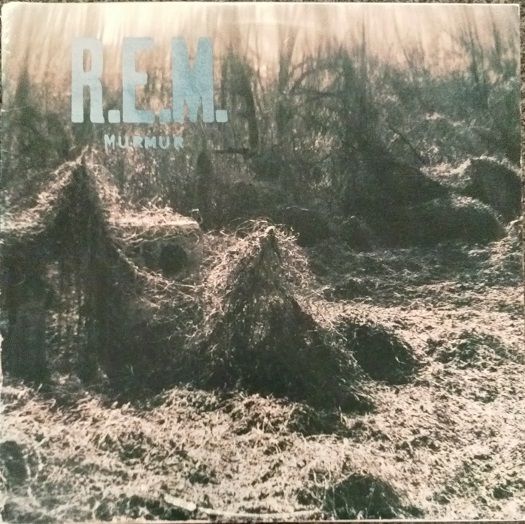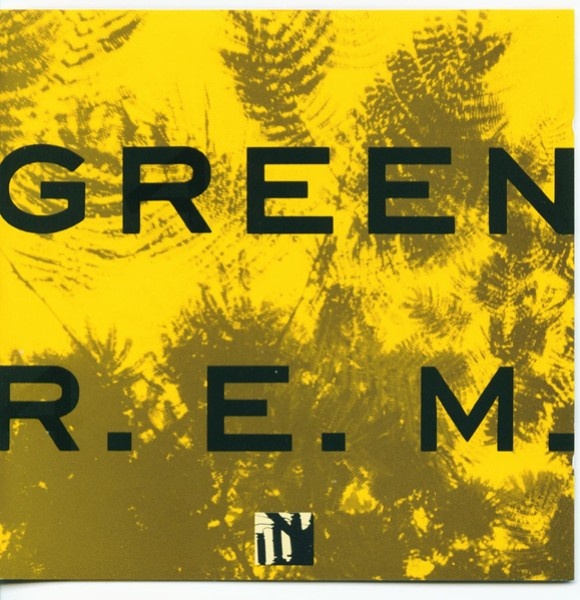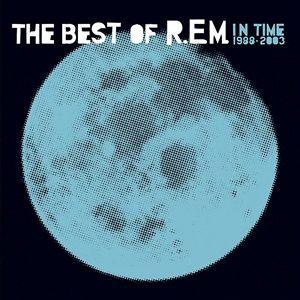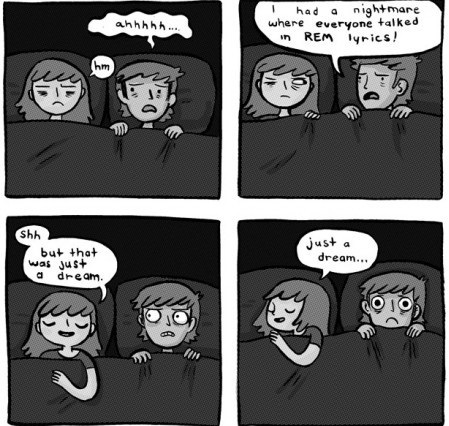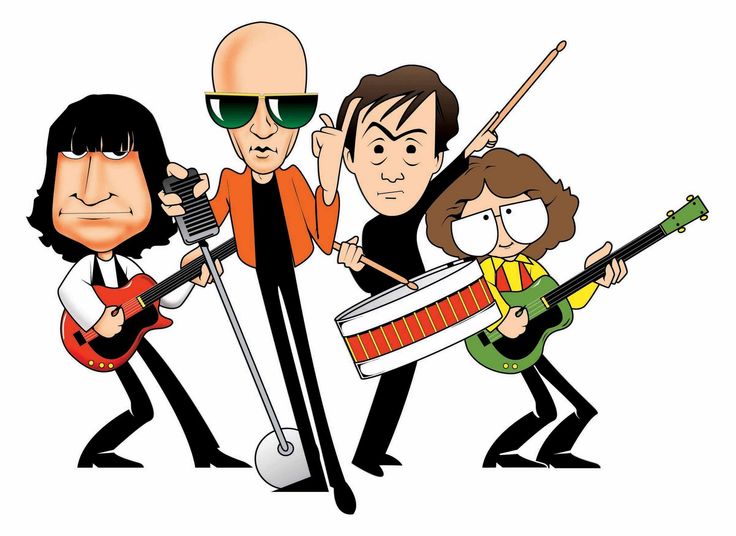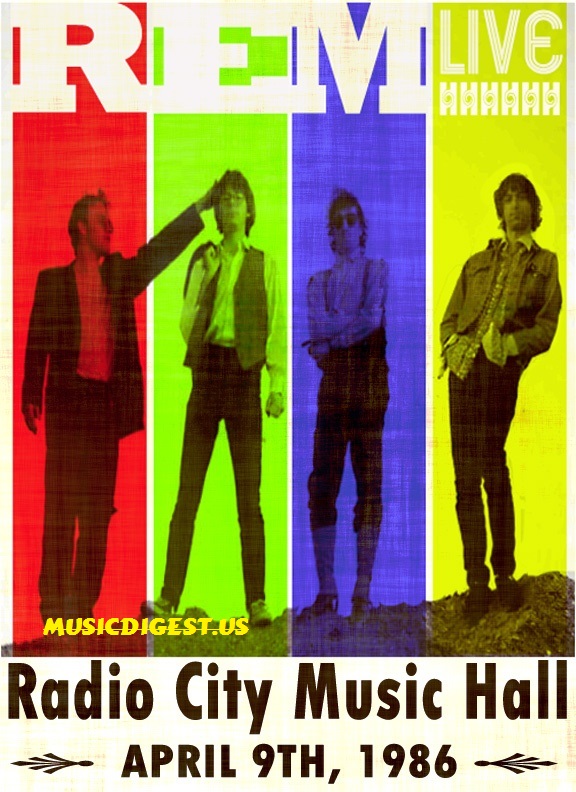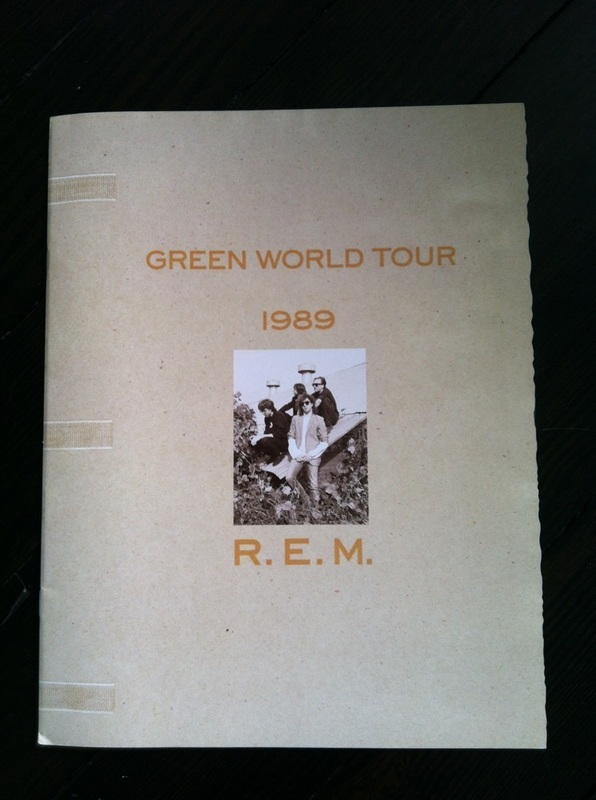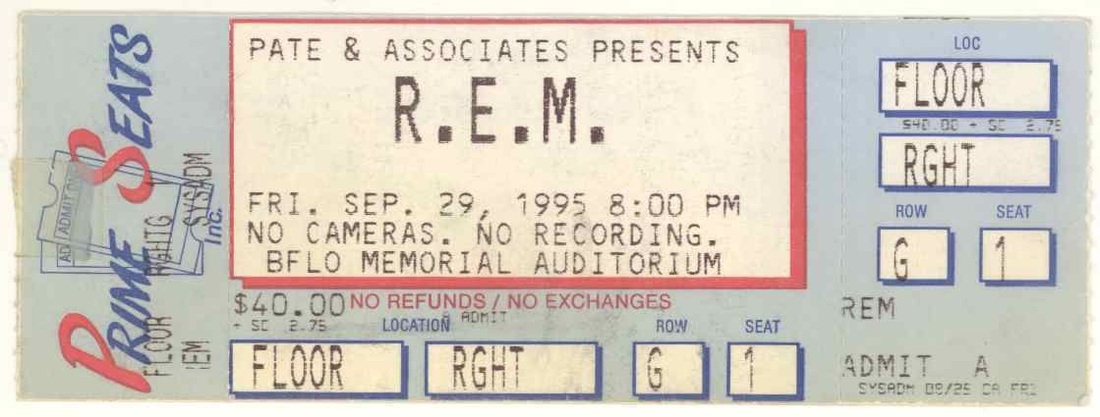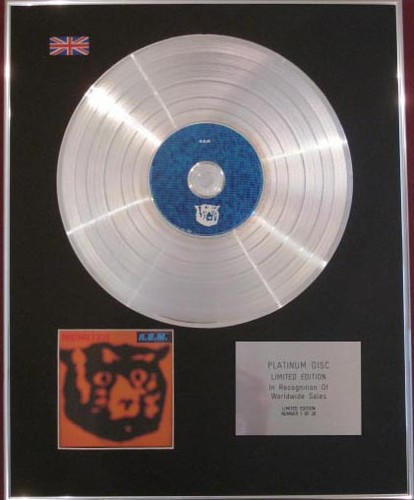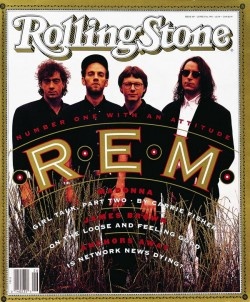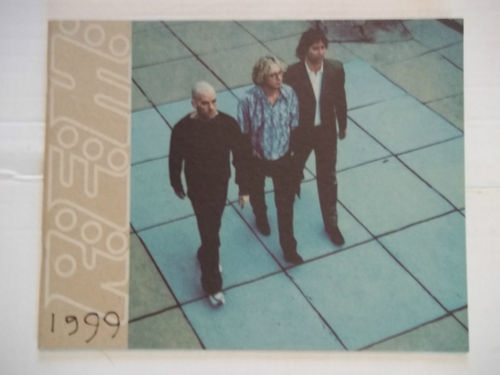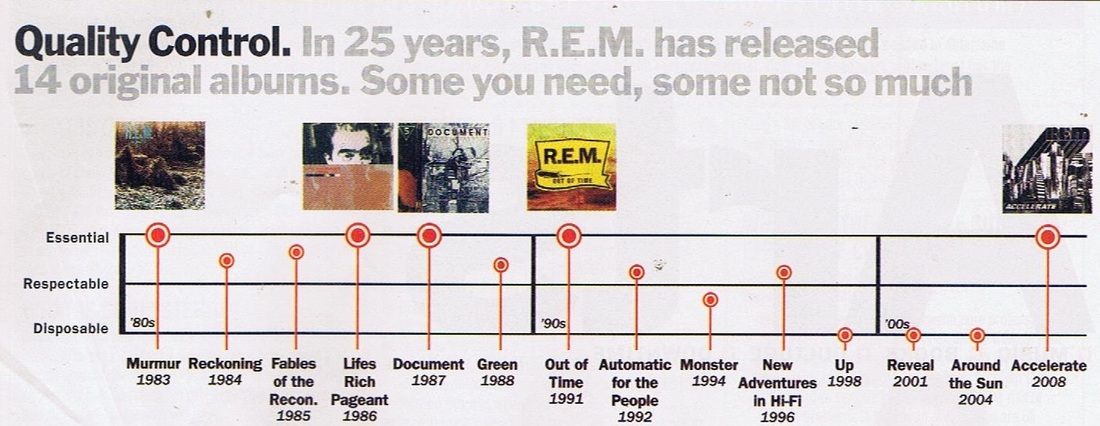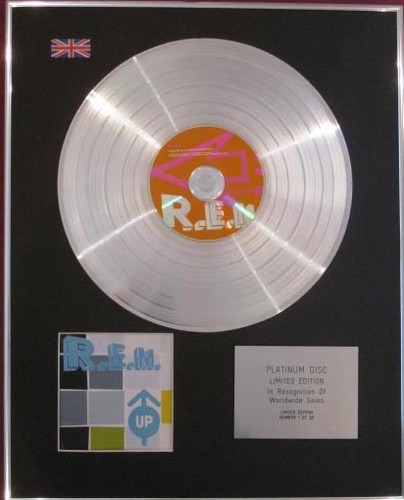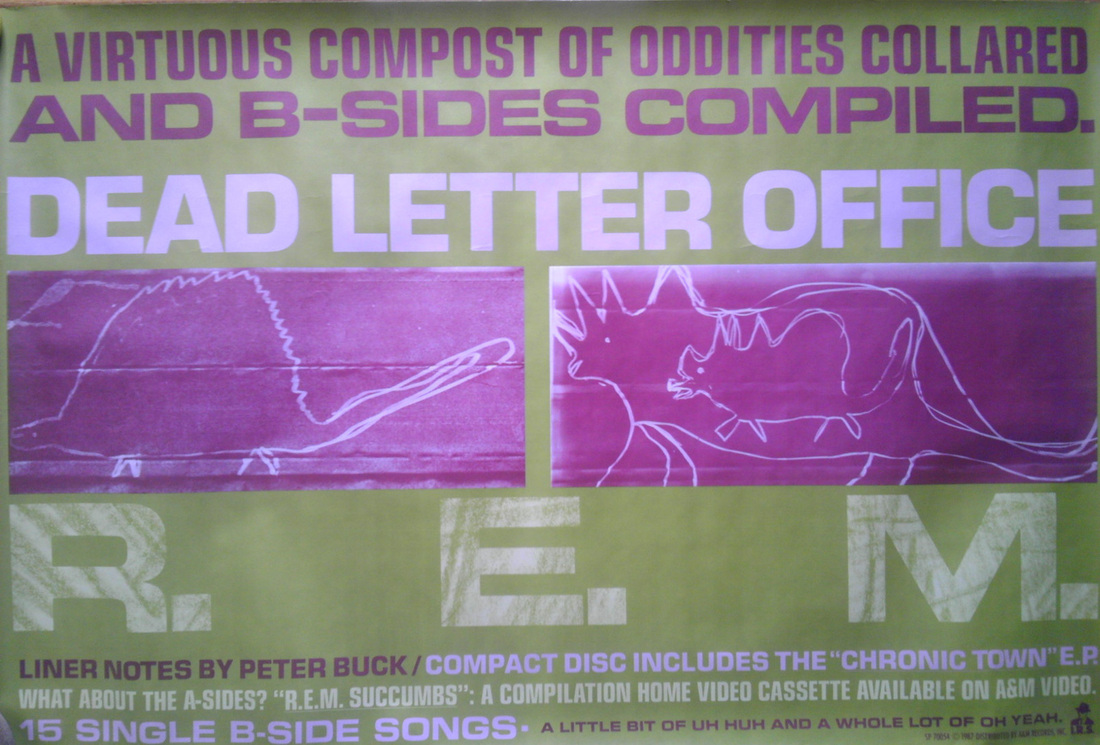|
|
R.E.M. was an American rock band from Athens, Georgia, formed in 1980 by singer Michael Stipe, guitarist Peter Buck, bassist Mike Mills and drummer Bill Berry. One of the first popular alternative rock bands, R.E.M. gained early attention due to Buck's ringing, arpeggiated guitar style and Stipe's unclear vocals. R.E.M. released its first single, "Radio Free Europe", in 1981 on the independent record label Hib-Tone. The single was followed by the Chronic Town EP in 1982, the band's first release on I.R.S. Records. In 1983, the group released its critically acclaimed debut album, Murmur, and built its reputation over the next few years through subsequent releases, constant touring, and the support of college radio.
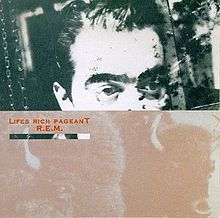
Lifes Rich Pageant is the fourth album by REM, released in 1986. R.E.M. chose Don Gehman to produce the album, which was recorded at John Mellencamp's Belmont Mall Studios in Belmont, Indiana.
Fables of the Reconstruction was intentionally murky, and Lifes Rich Pageant was constructed as its polar opposite. Teaming with producer Don Gehman, who previously worked with John Mellencamp, R.E.M. developed their most forceful record to date. Where previous records kept the rhythm section in the background, Pageant emphasizes the beat, and the band turns in its hardest rockers to date, including the anthemic "Begin the Begin" and the punky "Just a Touch." But the cleaner production also benefits the ballads and the mid-tempo janglers, particularly since it helps reveal Michael Stipe's growing political obsessions, especially on the environmental anthems "Fall on Me" and "Cuyahoga." The group hasn't entirely left myths behind -- witness the Civil War ballad "Swan Swan H" -- but the band sound more contemporary both musically and lyrically than they did on either Fables or Murmur, which helps give the record an extra kick. And even with excellent songs like "I Believe," "Flowers of Guatemala," "These Days," and "What if We Give It Away," it's ironic that the most memorable moment comes from the garage rock obscurity "Superman," which is sung with glee by Mike Mills. (SOURCE: All Music) Following years of underground success, R.E.M. achieved a mainstream hit in 1987 with the single "The One I Love". The group signed to Warner Bros. Records in 1988, and began to espouse political and environmental concerns while playing large arenas worldwide.
|
|
By the early 1990s, when alternative rock began to experience broad mainstream success, R.E.M. was viewed by subsequent acts such as Nirvana and Pavement as a pioneer of the genre and released its two most commercially successful albums, Out of Time (1991) and Automatic for the People (1992), which veered from the band's established sound. R.E.M.'s 1994 release, Monster, was a return to a more rock-oriented sound. The band began its first tour in six years to support the album; the tour was marred by medical emergencies suffered by three band members.
|
In 1996, R.E.M. re-signed with Warner Bros. for a reported US$80 million, at the time the most expensive recording contract in history. The following year, Bill Berry left the band, while Buck, Mills, and Stipe continued the group as a trio.
|
Through some changes in musical style, the band continued its career into the next decade with mixed critical and commercial success. In 2007, the band was inducted into the Rock and Roll Hall of Fame. R.E.M. disbanded in September 2011, announcing the split on its website
Jan 31, 2012: Listening to a sad song has reduced seven out of ten men to tears, according to the study. And almost 90 per cent of women admit listening to an emotional song or passage of music has made them cry. The research shows one in five females 'often' shed tears when they hear a sad tune. And 'Everybody Hurts' by American band REM was named as the saddest song of all time, beating Elton John's 'Candle in the Wind'. Mike and the Mechanics' 'The Living Years' came third in the poll. (SOURCE: The Telegraph)

